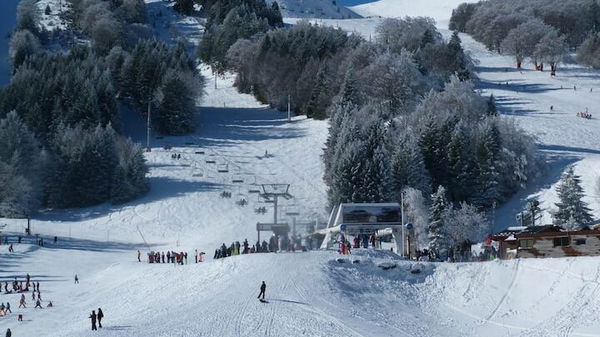

The FIS Skiing World Cup is back, promising an exhilarating six months of high-speed action as athletes race towards the coveted crystal globe. The 2024 season is packed with thrilling events and special races, guaranteed to keep fans on the edge of their seats. Ski enthusiasts from around the world will soon converge in Sölden, Austria, where the top competitors will kick off the season in a fierce battle for the prestigious title.
The countdown is on, with the action starting on October 26 and concluding on March 25 next year! Even before the world’s best skiers hit the slopes, the ski community is already buzzing with excitement—major news has surfaced, creating as much anticipation as the World Cup itself.
On October 7th, Alpe du Grand Serre, a historic French Alpine ski resort, announced its closure due to insufficient funds to become a year-round destination. With warming temperatures and decreasing snowfalls shortening ski seasons, local authorities couldn’t afford to maintain the mountain lifts or complete their diversification project. This decision impacts 200 jobs and the nearby village of La Morte, where 150 residents rely on winter tourism.
ADVERTISEMENT
Article continues below this ad
Over the past two years, low snowfall has caused delayed openings and early closures. Despite investing €3 million since 2021 to develop hiking and biking trails, the funds were insufficient. Coraline Saurat, head of the local council, expressed regret, noting that they couldn’t renew the contract for lift operations. She called for state intervention to support skiing stations facing similar challenges. This decision has sparked debates and calls for state intervention to support struggling ski resorts.

Saurat highlighted the lack of concrete support, emphasizing that managing the budget shortfall alone was unfeasible. She questioned whether it was the responsibility of local authorities to oversee ski stations, suggesting that the challenges were too overwhelming. Alpe du Grand Serre, the northern Alps’ second-oldest resort, now faces an uncertain future, with many families affected, including instructors from the French Ski School (ESF). As Florent Battistel of ESF put it, “A sudden closure is a tragedy for the whole valley.”
What’s your perspective on:
Is climate change the ultimate rival for winter sports, or can FIS's new partnership make a difference?
Have an interesting take?
With the whole climate change issue causing even iconic Alpine resorts to close up shop, the FIS Ski World Cup stepped up. They decided to get ahead of the game, pushing for environmental conservation and spreading the word about climate change.
FIS carves a path for climate action in the skiing world
Last week, the International Ski and Snowboard Federation (FIS) partnered with the World Meteorological Organization (WMO) to raise awareness about the impact of climate change on winter sports and tourism. This collaboration is significant as it marks the first time the UN’s WMO has joined forces with a sports federation. They are launching this initiative just in time for the 2024-25 winter season to encourage everyone to consider these critical issues.

“Ruined winter vacations and cancelled sports fixtures are–literally–the tip of the iceberg of climate change,” said WMO Secretary-General Celeste Saulo. Last season, FIS managed to organize 616 World Cup races across 166 venues, but 26 of them had to be scrapped because of crazy weather. In places like Italy, you can find entire mountains without snow and abandoned ski centers as rising temperatures put the ski industry in a tough spot.
FIS President Johan Eliasch highlighted just how serious this is, saying, “The climate crisis is obviously far bigger than FIS − or sports, for that matter: it is a genuine crossroads for mankind.” With this new partnership, FIS and WMO are gearing up to tackle these challenges and hopefully inspire everyone—athletes and fans alike—to step up and make a difference for the future of winter sports.
ADVERTISEMENT
Article continues below this ad
ADVERTISEMENT
Article continues below this ad
ADVERTISEMENT
ADVERTISEMENT
ADVERTISEMENT
ADVERTISEMENT


Is climate change the ultimate rival for winter sports, or can FIS's new partnership make a difference?